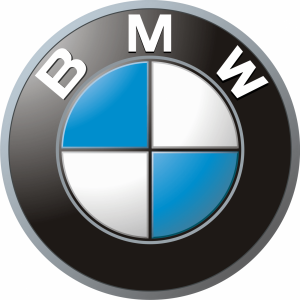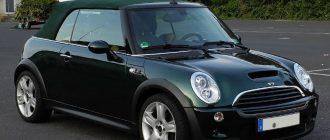- Exterior of BMW X3 E83
- xDrive All-Wheel Drive Systems
- xDrive All-Wheel Drive Systems
- xDrive All-Wheel Drive Systems
- xDrive All-Wheel Drive Systems
- xDrive All-Wheel Drive Systems
- BMW 3.0d
- xDrive All-Wheel Drive Systems
- BMW 3.0d
- xDrive All-Wheel Drive Systems
- BMW 3.0d
- xDrive All-Wheel Drive Systems
- BMW 3.0d
- xDrive All-Wheel Drive Systems
- BMW 3.0d
- xDrive All-Wheel Drive Systems
- Two-liter diesel options
- BMW 3.0d
- xDrive All-Wheel Drive Systems
- Engines under #52
- Two-liter diesel options
- BMW 3.0d
- xDrive All-Wheel Drive Systems
- Engines under #52
- Two-liter diesel options
- BMW 3.0d
- xDrive All-Wheel Drive Systems
- Restyling Events
- Interior Solutions
- Engines of BMW X3 E83
- Pre-facelift 2.5i
- Reliability shown by 3.0i engines
- Engines under #52
- Two-liter diesel options
- BMW 3.0d
- xDrive All-Wheel Drive Systems
- Restyling Events
- Interior Solutions
- Engines of BMW X3 E83
- Pre-facelift 2.5i
- Reliability shown by 3.0i engines
- Engines under #52
- Two-liter diesel options
- BMW 3.0d
- xDrive All-Wheel Drive Systems
The compact crossovers BMW X3 E83 appeared four years after the debut of the X5 E53. They were produced for a whole seven years (2003 — 2010), and then replaced by the assembly of BMW F25 cars.
Used crossovers do not have a clear price. It depends on the equipment, technical condition, but not on the year of production.
For instance, a car that is already worn out and from 2009 will be difficult to sell compared to a well-maintained model from 2004. The latter will cost twice as much as the later version. However, such cars are rarely seen for sale.
Important! Never buy a car without diagnostics. Always check used cars. Whether well-maintained or not, be sure to run diagnostics.
The first BMW X5 E53 cars were received with great triumph and immediately received high ratings. However, many could not afford them due to the staggering price. Therefore, the company decided to release more affordable cars.
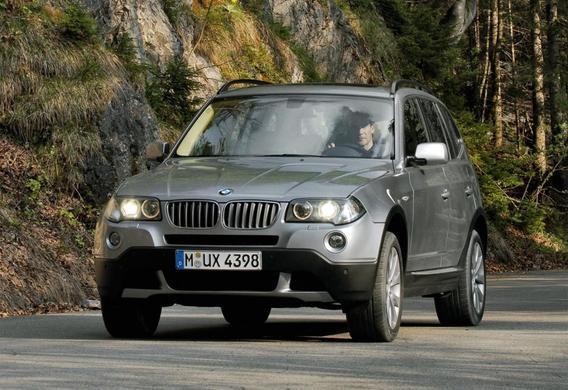
Over time, they proved themselves as true high-quality Bavarian vehicles. Unfortunately, they are mixed with less expressive technology when it comes to new engines. This applies to the new engines. Although they also differ from each other.
As soon as the cars were presented, critics had plenty to say about them. Then the passions subsided, and today they are the most coveted automobiles.
Exterior of BMW X3 E83
What to pay attention to first:
- The quality of the metal and paint is top-notch if the car is not damaged. If corrosion is found, know that a poor repair was done after an accident.
- You may find traces of rust in engine modules and welding areas.
- Rust may also form on support cups and wheel arches.
- When inspecting the rear parts of the car, examine the trunk lids. Due to their design, water can seep in, leading to corrosion.
- Pay attention to the license plates, as the paint may have worn off.
- Pre-facelift models were equipped with rigid door seals, so pay attention to the door sills where the paint may wear off to the metal base. If present, the door seals need replacement.
- Cabin filters may also lose their properties due to possible moisture ingress.
- Factory wiper arms with bushings are not durable.
xDrive All-Wheel Drive Systems
There are currently many BMW X3 E83 cars with damaged intelligent all-wheel drive systems, xDrive. In these cases, the power transmission from the engines affects not all wheels but only those located at the rear.
There are currently many BMW X3 E83 cars with damaged intelligent all-wheel drive systems, xDrive. In these cases, the power transmission from the engines affects not all wheels but only those located at the rear.
- They have become powerful through control units, so they have high working temperatures. Due to this, crankshaft pulley dampers may delaminate, leading to expensive repairs. With powerful engines, compact starters may struggle to rotate.
- Diesel particulate filters can also cause issues, especially in urban conditions.
- Check the integrity of the intake manifolds in the cars. They may crack, so it is better to replace them with cast iron ones (with part numbers: 11622248166 / 11627788422).
- The intake manifolds wear out. Cases of oil traces or strange noises when increasing the revs indicate trouble. Replace the throttle valves or remove them, as they can damage turbochargers and piston groups, leading to costly engine repairs.
- After 50 — 60 thousand km, clean the crankcase ventilation valves; otherwise, they will clog and function poorly.
- If the car starts to whistle and does not want to run at low revs, then the variable geometry turbine needs cleaning. Sometimes this does not help, and it needs replacement.
- Change the spark plugs every 4 years. Even with one faulty spark plug, the control unit may fail.
- If you smell burnt rubber, know that the crankshaft pulley dampers have delaminated. You may lose the car as problems with ancillary equipment may arise. Try to install new dampers in the car after 120 — 150 thousand km.
xDrive All-Wheel Drive Systems
There are currently many BMW X3 E83 cars with damaged intelligent all-wheel drive systems, xDrive. In these cases, the power transmission from the engines affects not all wheels but only those located at the rear.
- Oil leaks may occur,
- oil pumps wear out,
- cooling systems are prone to damage, and
- thermostats are unreliable.
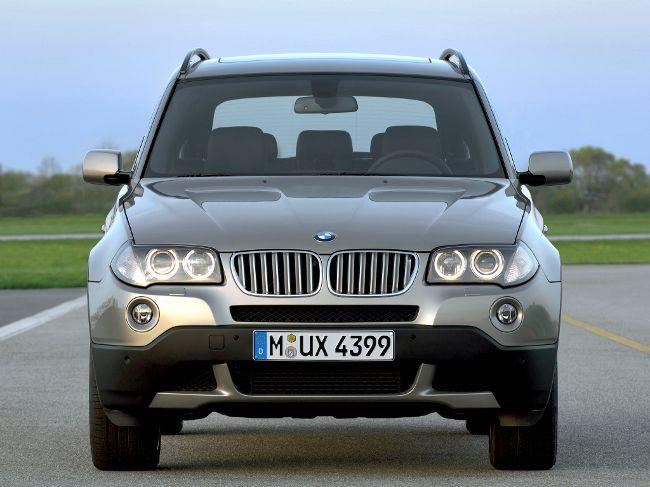
If you are buying these models in good condition, do not forget about regular maintenance.
- They have become powerful through control units, so they have high working temperatures. Due to this, crankshaft pulley dampers may delaminate, leading to expensive repairs. With powerful engines, compact starters may struggle to rotate.
- Diesel particulate filters can also cause issues, especially in urban conditions.
- Check the integrity of the intake manifolds in the cars. They may crack, so it is better to replace them with cast iron ones (with part numbers: 11622248166 / 11627788422).
- The intake manifolds wear out. Cases of oil traces or strange noises when increasing the revs indicate trouble. Replace the throttle valves or remove them, as they can damage turbochargers and piston groups, leading to costly engine repairs.
- After 50 — 60 thousand km, clean the crankcase ventilation valves; otherwise, they will clog and function poorly.
- If the car starts to whistle and does not want to run at low revs, then the variable geometry turbine needs cleaning. Sometimes this does not help, and it needs replacement.
- Change the spark plugs every 4 years. Even with one faulty spark plug, the control unit may fail.
- If you smell burnt rubber, know that the crankshaft pulley dampers have delaminated. You may lose the car as problems with ancillary equipment may arise. Try to install new dampers in the car after 120 — 150 thousand km.
xDrive All-Wheel Drive Systems
There are currently many BMW X3 E83 cars with damaged intelligent all-wheel drive systems, xDrive. In these cases, the power transmission from the engines affects not all wheels but only those located at the rear.
They do not overheat, although they do have issues:
- Oil leaks may occur,
- oil pumps wear out,
- cooling systems are prone to damage, and
- thermostats are unreliable.














If you are buying these models in good condition, do not forget about regular maintenance.
- They have become powerful through control units, so they have high working temperatures. Due to this, crankshaft pulley dampers may delaminate, leading to expensive repairs. With powerful engines, compact starters may struggle to rotate.
- Diesel particulate filters can also cause issues, especially in urban conditions.
- Check the integrity of the intake manifolds in the cars. They may crack, so it is better to replace them with cast iron ones (with part numbers: 11622248166 / 11627788422).
- The intake manifolds wear out. Cases of oil traces or strange noises when increasing the revs indicate trouble. Replace the throttle valves or remove them, as they can damage turbochargers and piston groups, leading to costly engine repairs.
- After 50 — 60 thousand km, clean the crankcase ventilation valves; otherwise, they will clog and function poorly.
- If the car starts to whistle and does not want to run at low revs, then the variable geometry turbine needs cleaning. Sometimes this does not help, and it needs replacement.
- Change the spark plugs every 4 years. Even with one faulty spark plug, the control unit may fail.
- If you smell burnt rubber, know that the crankshaft pulley dampers have delaminated. You may lose the car as problems with ancillary equipment may arise. Try to install new dampers in the car after 120 — 150 thousand km.
xDrive All-Wheel Drive Systems
There are currently many BMW X3 E83 cars with damaged intelligent all-wheel drive systems, xDrive. In these cases, the power transmission from the engines affects not all wheels but only those located at the rear.
The most crucial aspect when buying is the car's condition. Therefore, look at the three-liter diesel engines. They are economical and reliable — these are the #57 engines. They are durable units with a lifespan of over 300 thousand km.
They do not overheat, although they do have issues:
- Oil leaks may occur,
- oil pumps wear out,
- cooling systems are prone to damage, and
- thermostats are unreliable.














If you are buying these models in good condition, do not forget about regular maintenance.
- They have become powerful through control units, so they have high working temperatures. Due to this, crankshaft pulley dampers may delaminate, leading to expensive repairs. With powerful engines, compact starters may struggle to rotate.
- Diesel particulate filters can also cause issues, especially in urban conditions.
- Check the integrity of the intake manifolds in the cars. They may crack, so it is better to replace them with cast iron ones (with part numbers: 11622248166 / 11627788422).
- The intake manifolds wear out. Cases of oil traces or strange noises when increasing the revs indicate trouble. Replace the throttle valves or remove them, as they can damage turbochargers and piston groups, leading to costly engine repairs.
- After 50 — 60 thousand km, clean the crankcase ventilation valves; otherwise, they will clog and function poorly.
- If the car starts to whistle and does not want to run at low revs, then the variable geometry turbine needs cleaning. Sometimes this does not help, and it needs replacement.
- Change the spark plugs every 4 years. Even with one faulty spark plug, the control unit may fail.
- If you smell burnt rubber, know that the crankshaft pulley dampers have delaminated. You may lose the car as problems with ancillary equipment may arise. Try to install new dampers in the car after 120 — 150 thousand km.
xDrive All-Wheel Drive Systems
There are currently many BMW X3 E83 cars with damaged intelligent all-wheel drive systems, xDrive. In these cases, the power transmission from the engines affects not all wheels but only those located at the rear.
BMW 3.0d
The most crucial aspect when buying is the car's condition. Therefore, look at the three-liter diesel engines. They are economical and reliable — these are the #57 engines. They are durable units with a lifespan of over 300 thousand km.
They do not overheat, although they do have issues:
- Oil leaks may occur,
- oil pumps wear out,
- cooling systems are prone to damage, and
- thermostats are unreliable.














If you are buying these models in good condition, do not forget about regular maintenance.
- They have become powerful through control units, so they have high working temperatures. Due to this, crankshaft pulley dampers may delaminate, leading to expensive repairs. With powerful engines, compact starters may struggle to rotate.
- Diesel particulate filters can also cause issues, especially in urban conditions.
- Check the integrity of the intake manifolds in the cars. They may crack, so it is better to replace them with cast iron ones (with part numbers: 11622248166 / 11627788422).
- The intake manifolds wear out. Cases of oil traces or strange noises when increasing the revs indicate trouble. Replace the throttle valves or remove them, as they can damage turbochargers and piston groups, leading to costly engine repairs.
- After 50 — 60 thousand km, clean the crankcase ventilation valves; otherwise, they will clog and function poorly.
- If the car starts to whistle and does not want to run at low revs, then the variable geometry turbine needs cleaning. Sometimes this does not help, and it needs replacement.
- Change the spark plugs every 4 years. Even with one faulty spark plug, the control unit may fail.
- If you smell burnt rubber, know that the crankshaft pulley dampers have delaminated. You may lose the car as problems with ancillary equipment may arise. Try to install new dampers in the car after 120 — 150 thousand km.
xDrive All-Wheel Drive Systems
There are currently many BMW X3 E83 cars with damaged intelligent all-wheel drive systems, xDrive. In these cases, the power transmission from the engines affects not all wheels but only those located at the rear.
If everything is in order and you do not need to worry about the camshaft drive chains, as they are already updated in the cars you want to buy, you will appreciate the engines for their reliability and stable injection system.
BMW 3.0d
The most crucial aspect when buying is the car's condition. Therefore, look at the three-liter diesel engines. They are economical and reliable — these are the #57 engines. They are durable units with a lifespan of over 300 thousand km.
They do not overheat, although they do have issues:
- Oil leaks may occur,
- oil pumps wear out,
- cooling systems are prone to damage, and
- thermostats are unreliable.














If you are buying these models in good condition, do not forget about regular maintenance.
- They have become powerful through control units, so they have high working temperatures. Due to this, crankshaft pulley dampers may delaminate, leading to expensive repairs. With powerful engines, compact starters may struggle to rotate.
- Diesel particulate filters can also cause issues, especially in urban conditions.
- Check the integrity of the intake manifolds in the cars. They may crack, so it is better to replace them with cast iron ones (with part numbers: 11622248166 / 11627788422).
- The intake manifolds wear out. Cases of oil traces or strange noises when increasing the revs indicate trouble. Replace the throttle valves or remove them, as they can damage turbochargers and piston groups, leading to costly engine repairs.
- After 50 — 60 thousand km, clean the crankcase ventilation valves; otherwise, they will clog and function poorly.
- If the car starts to whistle and does not want to run at low revs, then the variable geometry turbine needs cleaning. Sometimes this does not help, and it needs replacement.
- Change the spark plugs every 4 years. Even with one faulty spark plug, the control unit may fail.
- If you smell burnt rubber, know that the crankshaft pulley dampers have delaminated. You may lose the car as problems with ancillary equipment may arise. Try to install new dampers in the car after 120 — 150 thousand km.
xDrive All-Wheel Drive Systems
There are currently many BMW X3 E83 cars with damaged intelligent all-wheel drive systems, xDrive. In these cases, the power transmission from the engines affects not all wheels but only those located at the rear.
If everything is in order and you do not need to worry about the camshaft drive chains, as they are already updated in the cars you want to buy, you will appreciate the engines for their reliability and stable injection system.
BMW 3.0d
The most crucial aspect when buying is the car's condition. Therefore, look at the three-liter diesel engines. They are economical and reliable — these are the #57 engines. They are durable units with a lifespan of over 300 thousand km.
They do not overheat, although they do have issues:
- Oil leaks may occur,
- oil pumps wear out,
- cooling systems are prone to damage, and
- thermostats are unreliable.














If you are buying these models in good condition, do not forget about regular maintenance.
- They have become powerful through control units, so they have high working temperatures. Due to this, crankshaft pulley dampers may delaminate, leading to expensive repairs. With powerful engines, compact starters may struggle to rotate.
- Diesel particulate filters can also cause issues, especially in urban conditions.
- Check the integrity of the intake manifolds in the cars. They may crack, so it is better to replace them with cast iron ones (with part numbers: 11622248166 / 11627788422).
- The intake manifolds wear out. Cases of oil traces or strange noises when increasing the revs indicate trouble. Replace the throttle valves or remove them, as they can damage turbochargers and piston groups, leading to costly engine repairs.
- After 50 — 60 thousand km, clean the crankcase ventilation valves; otherwise, they will clog and function poorly.
- If the car starts to whistle and does not want to run at low revs, then the variable geometry turbine needs cleaning. Sometimes this does not help, and it needs replacement.
- Change the spark plugs every 4 years. Even with one faulty spark plug, the control unit may fail.
- If you smell burnt rubber, know that the crankshaft pulley dampers have delaminated. You may lose the car as problems with ancillary equipment may arise. Try to install new dampers in the car after 120 — 150 thousand km.
xDrive All-Wheel Drive Systems
There are currently many BMW X3 E83 cars with damaged intelligent all-wheel drive systems, xDrive. In these cases, the power transmission from the engines affects not all wheels but only those located at the rear.
Do not delay — change the chains, or else a complete engine replacement may be necessary. Chain issues were only resolved by the company in 2011 with the second-generation BMW X3 F25.
Make sure to inspect models with this engine for the timing chain condition. It is better to buy a car where the chain has been replaced post-facelift, as doing it yourself after buying the car will cost you a pretty penny.
If everything is in order and you do not need to worry about the camshaft drive chains, as they are already updated in the cars you want to buy, you will appreciate the engines for their reliability and stable injection system.
BMW 3.0d
The most crucial aspect when buying is the car's condition. Therefore, look at the three-liter diesel engines. They are economical and reliable — these are the #57 engines. They are durable units with a lifespan of over 300 thousand km.
They do not overheat, although they do have issues:
- Oil leaks may occur,
- oil pumps wear out,
- cooling systems are prone to damage, and
- thermostats are unreliable.














If you are buying these models in good condition, do not forget about regular maintenance.
- They have become powerful through control units, so they have high working temperatures. Due to this, crankshaft pulley dampers may delaminate, leading to expensive repairs. With powerful engines, compact starters may struggle to rotate.
- Diesel particulate filters can also cause issues, especially in urban conditions.
- Check the integrity of the intake manifolds in the cars. They may crack, so it is better to replace them with cast iron ones (with part numbers: 11622248166 / 11627788422).
- The intake manifolds wear out. Cases of oil traces or strange noises when increasing the revs indicate trouble. Replace the throttle valves or remove them, as they can damage turbochargers and piston groups, leading to costly engine repairs.
- After 50 — 60 thousand km, clean the crankcase ventilation valves; otherwise, they will clog and function poorly.
- If the car starts to whistle and does not want to run at low revs, then the variable geometry turbine needs cleaning. Sometimes this does not help, and it needs replacement.
- Change the spark plugs every 4 years. Even with one faulty spark plug, the control unit may fail.
- If you smell burnt rubber, know that the crankshaft pulley dampers have delaminated. You may lose the car as problems with ancillary equipment may arise. Try to install new dampers in the car after 120 — 150 thousand km.
xDrive All-Wheel Drive Systems
There are currently many BMW X3 E83 cars with damaged intelligent all-wheel drive systems, xDrive. In these cases, the power transmission from the engines affects not all wheels but only those located at the rear.
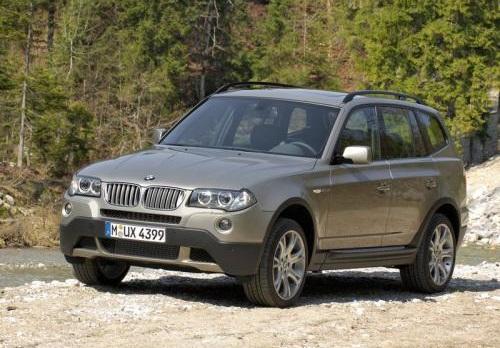






Post-facelift crossovers with the M47 engines exhibit better dynamics and fuel efficiency. The most serious and common issues are caused by the camshaft drive chains, which wear out quickly.
After 100 — 150 thousand km, the chains elongate and slip. Cold symptoms, noises, and impacts can be observed in the rear parts of the engines, with rumbling and metallic clanging.
Do not delay — change the chains, or else a complete engine replacement may be necessary. Chain issues were only resolved by the company in 2011 with the second-generation BMW X3 F25.
Make sure to inspect models with this engine for the timing chain condition. It is better to buy a car where the chain has been replaced post-facelift, as doing it yourself after buying the car will cost you a pretty penny.
If everything is in order and you do not need to worry about the camshaft drive chains, as they are already updated in the cars you want to buy, you will appreciate the engines for their reliability and stable injection system.
BMW 3.0d
The most crucial aspect when buying is the car's condition. Therefore, look at the three-liter diesel engines. They are economical and reliable — these are the #57 engines. They are durable units with a lifespan of over 300 thousand km.
They do not overheat, although they do have issues:
- Oil leaks may occur,
- oil pumps wear out,
- cooling systems are prone to damage, and
- thermostats are unreliable.














If you are buying these models in good condition, do not forget about regular maintenance.
- They have become powerful through control units, so they have high working temperatures. Due to this, crankshaft pulley dampers may delaminate, leading to expensive repairs. With powerful engines, compact starters may struggle to rotate.
- Diesel particulate filters can also cause issues, especially in urban conditions.
- Check the integrity of the intake manifolds in the cars. They may crack, so it is better to replace them with cast iron ones (with part numbers: 11622248166 / 11627788422).
- The intake manifolds wear out. Cases of oil traces or strange noises when increasing the revs indicate trouble. Replace the throttle valves or remove them, as they can damage turbochargers and piston groups, leading to costly engine repairs.
- After 50 — 60 thousand km, clean the crankcase ventilation valves; otherwise, they will clog and function poorly.
- If the car starts to whistle and does not want to run at low revs, then the variable geometry turbine needs cleaning. Sometimes this does not help, and it needs replacement.
- Change the spark plugs every 4 years. Even with one faulty spark plug, the control unit may fail.
- If you smell burnt rubber, know that the crankshaft pulley dampers have delaminated. You may lose the car as problems with ancillary equipment may arise. Try to install new dampers in the car after 120 — 150 thousand km.
xDrive All-Wheel Drive Systems
There are currently many BMW X3 E83 cars with damaged intelligent all-wheel drive systems, xDrive. In these cases, the power transmission from the engines affects not all wheels but only those located at the rear.
To prolong service life, change the oil every 5 — 7 thousand km.
If oil consumption exceeds 300 ml/1000 km, know that the catalytic converters have less than a year left. You're at risk if oil consumption is around one liter/1000 km.
Although these engines are problematic, everything will depend on your capabilities.
Two-liter diesel options
The 2.0d models with M47 engines, unlike their petrol counterparts, will perform slightly better in terms of dynamics, fuel consumption, and reliability. This cannot be said for cars with the new N-series engines. The M47 engines are similar to the powerful M57 units.
Timing chains need replacement after 150 — 180 thousand km. They are located at the front of the engines, making replacement simple.







Post-facelift crossovers with the M47 engines exhibit better dynamics and fuel efficiency. The most serious and common issues are caused by the camshaft drive chains, which wear out quickly.
After 100 — 150 thousand km, the chains elongate and slip. Cold symptoms, noises, and impacts can be observed in the rear parts of the engines, with rumbling and metallic clanging.
Do not delay — change the chains, or else a complete engine replacement may be necessary. Chain issues were only resolved by the company in 2011 with the second-generation BMW X3 F25.
Make sure to inspect models with this engine for the timing chain condition. It is better to buy a car where the chain has been replaced post-facelift, as doing it yourself after buying the car will cost you a pretty penny.
If everything is in order and you do not need to worry about the camshaft drive chains, as they are already updated in the cars you want to buy, you will appreciate the engines for their reliability and stable injection system.
BMW 3.0d
The most crucial aspect when buying is the car's condition. Therefore, look at the three-liter diesel engines. They are economical and reliable — these are the #57 engines. They are durable units with a lifespan of over 300 thousand km.
They do not overheat, although they do have issues:
- Oil leaks may occur,
- oil pumps wear out,
- cooling systems are prone to damage, and
- thermostats are unreliable.














If you are buying these models in good condition, do not forget about regular maintenance.
- They have become powerful through control units, so they have high working temperatures. Due to this, crankshaft pulley dampers may delaminate, leading to expensive repairs. With powerful engines, compact starters may struggle to rotate.
- Diesel particulate filters can also cause issues, especially in urban conditions.
- Check the integrity of the intake manifolds in the cars. They may crack, so it is better to replace them with cast iron ones (with part numbers: 11622248166 / 11627788422).
- The intake manifolds wear out. Cases of oil traces or strange noises when increasing the revs indicate trouble. Replace the throttle valves or remove them, as they can damage turbochargers and piston groups, leading to costly engine repairs.
- After 50 — 60 thousand km, clean the crankcase ventilation valves; otherwise, they will clog and function poorly.
- If the car starts to whistle and does not want to run at low revs, then the variable geometry turbine needs cleaning. Sometimes this does not help, and it needs replacement.
- Change the spark plugs every 4 years. Even with one faulty spark plug, the control unit may fail.
- If you smell burnt rubber, know that the crankshaft pulley dampers have delaminated. You may lose the car as problems with ancillary equipment may arise. Try to install new dampers in the car after 120 — 150 thousand km.
xDrive All-Wheel Drive Systems
There are currently many BMW X3 E83 cars with damaged intelligent all-wheel drive systems, xDrive. In these cases, the power transmission from the engines affects not all wheels but only those located at the rear.
Engines under #52
After the restyling, engines under #54 were replaced with engines under #52 with indexes 2.5si and 3.0si.
They are problematic, less reliable, and require high-quality maintenance.
- They have complex designs with Valvetronic II systems and cooling with electric pumps.
- Issues may arise with oil seals, which need replacement after 50 — 60 thousand km. Although in three-liter versions 3.0si, they are more reliable.
- Problems can also occur in the piston groups. Piston ring contamination may be felt. After 120 thousand km, oil consumption can increase, leading to costly repairs.
- The engines tend to overheat, causing the cylindrical blocks to deform, utilizing a magnesium alloy for production.
- Engines with electronic oil level indicators may also become useless in case of excessive oil consumption.
- Cooling systems often break down — electric pumps are not durable. Due to the high working temperatures of the engines, plastic pipes may deteriorate. These elements need replacement every three years, just like rubber ones.
- Gaskets and seals wear out, causing oil leaks. This is all related to high working temperatures. To solve temperature issues, replace the thermostats with more efficient ones and adjust control units by making changes to the corresponding settings.
Keep the cooling systems clean. This includes radiators and fans.
To prolong service life, change the oil every 5 — 7 thousand km.
If oil consumption exceeds 300 ml/1000 km, know that the catalytic converters have less than a year left. You're at risk if oil consumption is around one liter/1000 km.
Although these engines are problematic, everything will depend on your capabilities.
Two-liter diesel options
The 2.0d models with M47 engines, unlike their petrol counterparts, will perform slightly better in terms of dynamics, fuel consumption, and reliability. This cannot be said for cars with the new N-series engines. The M47 engines are similar to the powerful M57 units.
Timing chains need replacement after 150 — 180 thousand km. They are located at the front of the engines, making replacement simple.







Post-facelift crossovers with the M47 engines exhibit better dynamics and fuel efficiency. The most serious and common issues are caused by the camshaft drive chains, which wear out quickly.
After 100 — 150 thousand km, the chains elongate and slip. Cold symptoms, noises, and impacts can be observed in the rear parts of the engines, with rumbling and metallic clanging.
Do not delay — change the chains, or else a complete engine replacement may be necessary. Chain issues were only resolved by the company in 2011 with the second-generation BMW X3 F25.
Make sure to inspect models with this engine for the timing chain condition. It is better to buy a car where the chain has been replaced post-facelift, as doing it yourself after buying the car will cost you a pretty penny.
If everything is in order and you do not need to worry about the camshaft drive chains, as they are already updated in the cars you want to buy, you will appreciate the engines for their reliability and stable injection system.
BMW 3.0d
The most crucial aspect when buying is the car's condition. Therefore, look at the three-liter diesel engines. They are economical and reliable — these are the #57 engines. They are durable units with a lifespan of over 300 thousand km.
They do not overheat, although they do have issues:
- Oil leaks may occur,
- oil pumps wear out,
- cooling systems are prone to damage, and
- thermostats are unreliable.














If you are buying these models in good condition, do not forget about regular maintenance.
- They have become powerful through control units, so they have high working temperatures. Due to this, crankshaft pulley dampers may delaminate, leading to expensive repairs. With powerful engines, compact starters may struggle to rotate.
- Diesel particulate filters can also cause issues, especially in urban conditions.
- Check the integrity of the intake manifolds in the cars. They may crack, so it is better to replace them with cast iron ones (with part numbers: 11622248166 / 11627788422).
- The intake manifolds wear out. Cases of oil traces or strange noises when increasing the revs indicate trouble. Replace the throttle valves or remove them, as they can damage turbochargers and piston groups, leading to costly engine repairs.
- After 50 — 60 thousand km, clean the crankcase ventilation valves; otherwise, they will clog and function poorly.
- If the car starts to whistle and does not want to run at low revs, then the variable geometry turbine needs cleaning. Sometimes this does not help, and it needs replacement.
- Change the spark plugs every 4 years. Even with one faulty spark plug, the control unit may fail.
- If you smell burnt rubber, know that the crankshaft pulley dampers have delaminated. You may lose the car as problems with ancillary equipment may arise. Try to install new dampers in the car after 120 — 150 thousand km.
xDrive All-Wheel Drive Systems
There are currently many BMW X3 E83 cars with damaged intelligent all-wheel drive systems, xDrive. In these cases, the power transmission from the engines affects not all wheels but only those located at the rear.
However, over time, they also wear out. The three-liter engines strike a balance between reliability, power, and good performance.
For good power, fuel costs are required. Therefore, gas installations are often seen on these cars. Engines under #54 function well with LPG.
Just do not forget about quality maintenance for these cars. There is no room for saving on this aspect. After 70 thousand km, valves for crankcase ventilation may fail, affecting oil consumption. If the flaps break, they enter the intake manifolds, leading to costly engine repairs.
Engines under #52
After the restyling, engines under #54 were replaced with engines under #52 with indexes 2.5si and 3.0si.
They are problematic, less reliable, and require high-quality maintenance.
- They have complex designs with Valvetronic II systems and cooling with electric pumps.
- Issues may arise with oil seals, which need replacement after 50 — 60 thousand km. Although in three-liter versions 3.0si, they are more reliable.
- Problems can also occur in the piston groups. Piston ring contamination may be felt. After 120 thousand km, oil consumption can increase, leading to costly repairs.
- The engines tend to overheat, causing the cylindrical blocks to deform, utilizing a magnesium alloy for production.
- Engines with electronic oil level indicators may also become useless in case of excessive oil consumption.
- Cooling systems often break down — electric pumps are not durable. Due to the high working temperatures of the engines, plastic pipes may deteriorate. These elements need replacement every three years, just like rubber ones.
- Gaskets and seals wear out, causing oil leaks. This is all related to high working temperatures. To solve temperature issues, replace the thermostats with more efficient ones and adjust control units by making changes to the corresponding settings.
Keep the cooling systems clean. This includes radiators and fans.
To prolong service life, change the oil every 5 — 7 thousand km.
If oil consumption exceeds 300 ml/1000 km, know that the catalytic converters have less than a year left. You're at risk if oil consumption is around one liter/1000 km.
Although these engines are problematic, everything will depend on your capabilities.
Two-liter diesel options
The 2.0d models with M47 engines, unlike their petrol counterparts, will perform slightly better in terms of dynamics, fuel consumption, and reliability. This cannot be said for cars with the new N-series engines. The M47 engines are similar to the powerful M57 units.
Timing chains need replacement after 150 — 180 thousand km. They are located at the front of the engines, making replacement simple.







Post-facelift crossovers with the M47 engines exhibit better dynamics and fuel efficiency. The most serious and common issues are caused by the camshaft drive chains, which wear out quickly.
After 100 — 150 thousand km, the chains elongate and slip. Cold symptoms, noises, and impacts can be observed in the rear parts of the engines, with rumbling and metallic clanging.
Do not delay — change the chains, or else a complete engine replacement may be necessary. Chain issues were only resolved by the company in 2011 with the second-generation BMW X3 F25.
Make sure to inspect models with this engine for the timing chain condition. It is better to buy a car where the chain has been replaced post-facelift, as doing it yourself after buying the car will cost you a pretty penny.
If everything is in order and you do not need to worry about the camshaft drive chains, as they are already updated in the cars you want to buy, you will appreciate the engines for their reliability and stable injection system.
BMW 3.0d
The most crucial aspect when buying is the car's condition. Therefore, look at the three-liter diesel engines. They are economical and reliable — these are the #57 engines. They are durable units with a lifespan of over 300 thousand km.
They do not overheat, although they do have issues:
- Oil leaks may occur,
- oil pumps wear out,
- cooling systems are prone to damage, and
- thermostats are unreliable.














If you are buying these models in good condition, do not forget about regular maintenance.
- They have become powerful through control units, so they have high working temperatures. Due to this, crankshaft pulley dampers may delaminate, leading to expensive repairs. With powerful engines, compact starters may struggle to rotate.
- Diesel particulate filters can also cause issues, especially in urban conditions.
- Check the integrity of the intake manifolds in the cars. They may crack, so it is better to replace them with cast iron ones (with part numbers: 11622248166 / 11627788422).
- The intake manifolds wear out. Cases of oil traces or strange noises when increasing the revs indicate trouble. Replace the throttle valves or remove them, as they can damage turbochargers and piston groups, leading to costly engine repairs.
- After 50 — 60 thousand km, clean the crankcase ventilation valves; otherwise, they will clog and function poorly.
- If the car starts to whistle and does not want to run at low revs, then the variable geometry turbine needs cleaning. Sometimes this does not help, and it needs replacement.
- Change the spark plugs every 4 years. Even with one faulty spark plug, the control unit may fail.
- If you smell burnt rubber, know that the crankshaft pulley dampers have delaminated. You may lose the car as problems with ancillary equipment may arise. Try to install new dampers in the car after 120 — 150 thousand km.
xDrive All-Wheel Drive Systems
There are currently many BMW X3 E83 cars with damaged intelligent all-wheel drive systems, xDrive. In these cases, the power transmission from the engines affects not all wheels but only those located at the rear.
Restyling Events
- They were conducted in 2016, and the optics were changed. They now feature angel eyes at the front.
- The headlights were given different shapes.
- Radiator grilles and bumpers now match the body color.
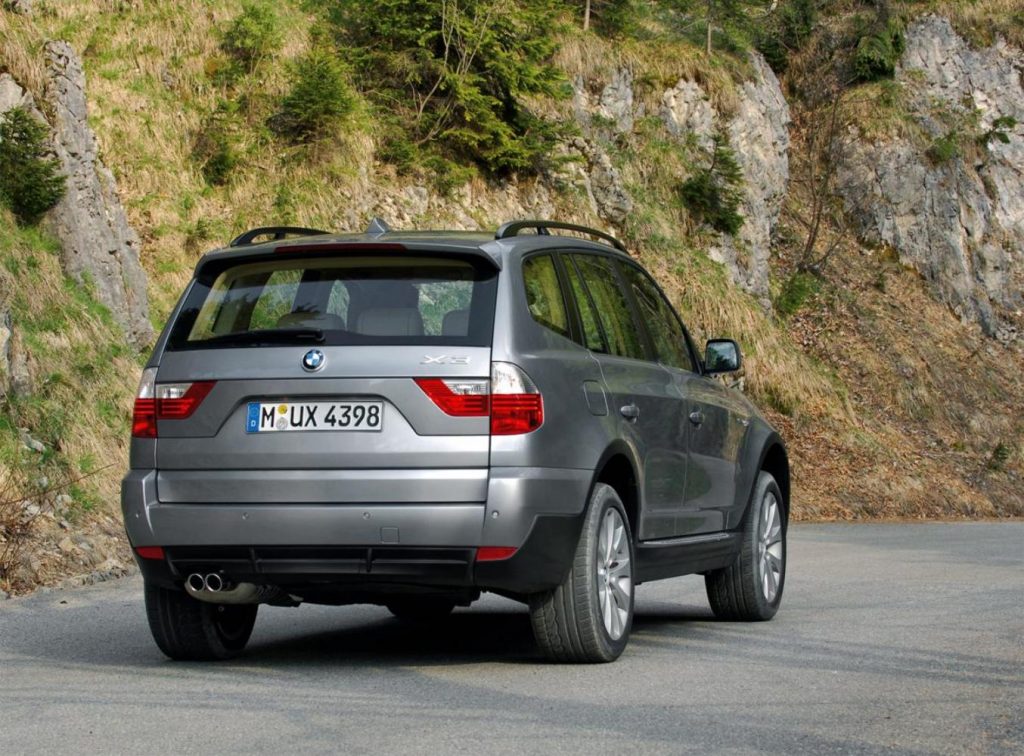


Interior Solutions
High-quality materials were used for the interiors. The assembly is excellent. However, there are age-related weaknesses such as:
- Poor sound insulation (depending on how the car was maintained);
- Decorative inserts that tend to come loose over time;
- Squeaks and knocks, mainly from the front seats.
Be sure to check how the climate controls work when inspecting the interiors.
Engines of BMW X3 E83
Let's consider the engines to choose the optimal one when buying a BMW X3 E83.
With the 2.0i engines, two-liter, four-cylinder #46, the cars are not particularly dynamic or powerful. Although fuel consumption does not differ much from three-liter petrol engines.
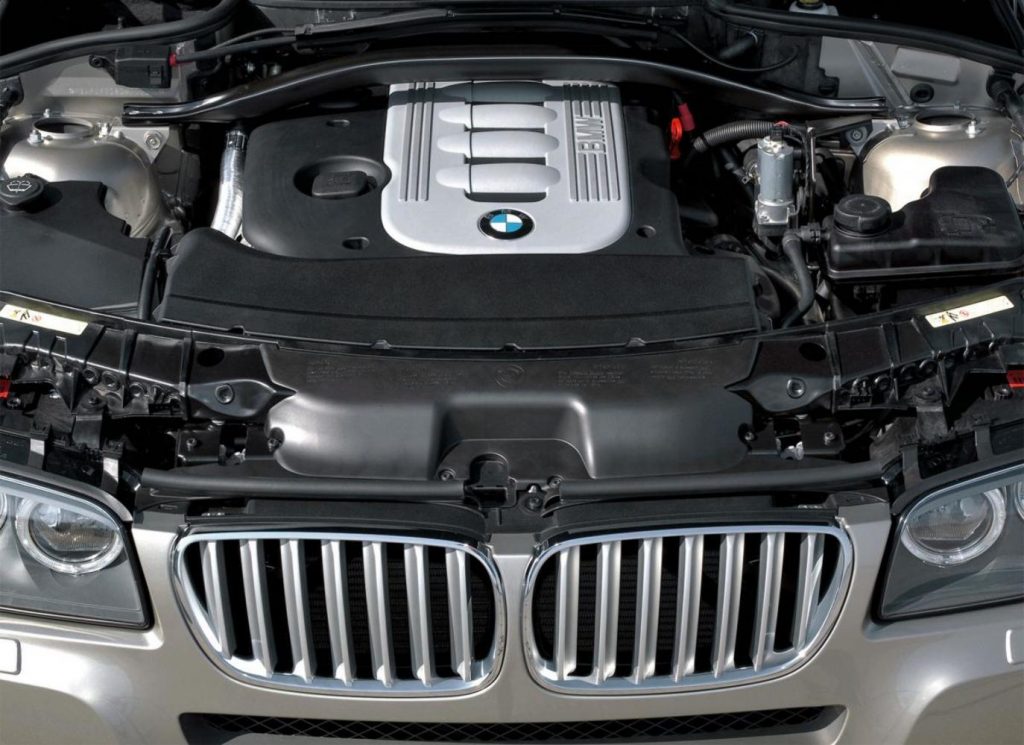


They are finicky and complex, leading to expensive problems after 50 — 60 thousand km. Equipped with Valvetronic mechanisms, they operate with high overheating tolerances.
Instances with oil leaks and issues with VANOS mechanisms can be found. Timely oil changes are necessary, but only with quality oil; otherwise, it will coagulate and clog.
Pre-facelift 2.5i
With gasoline #54, they are simpler, more reliable, and trouble-free until reaching 300 — 500 thousand km. However, diligent care is required. Ignition coils and throttle bodies are the most likely to suffer. These are not common issues.
Pay attention to gaskets; you may need to replace plastic elements of the intake manifolds.
Reliability shown by 3.0i engines
However, over time, they also wear out. The three-liter engines strike a balance between reliability, power, and good performance.
For good power, fuel costs are required. Therefore, gas installations are often seen on these cars. Engines under #54 function well with LPG.
Just do not forget about quality maintenance for these cars. There is no room for saving on this aspect. After 70 thousand km, valves for crankcase ventilation may fail, affecting oil consumption. If the flaps break, they enter the intake manifolds, leading to costly engine repairs.
Engines under #52
After the restyling, engines under #54 were replaced with engines under #52 with indexes 2.5si and 3.0si.
They are problematic, less reliable, and require high-quality maintenance.
- They have complex designs with Valvetronic II systems and cooling with electric pumps.
- Issues may arise with oil seals, which need replacement after 50 — 60 thousand km. Although in three-liter versions 3.0si, they are more reliable.
- Problems can also occur in the piston groups. Piston ring contamination may be felt. After 120 thousand km, oil consumption can increase, leading to costly repairs.
- The engines tend to overheat, causing the cylindrical blocks to deform, utilizing a magnesium alloy for production.
- Engines with electronic oil level indicators may also become useless in case of excessive oil consumption.
- Cooling systems often break down — electric pumps are not durable. Due to the high working temperatures of the engines, plastic pipes may deteriorate. These elements need replacement every three years, just like rubber ones.
- Gaskets and seals wear out, causing oil leaks. This is all related to high working temperatures. To solve temperature issues, replace the thermostats with more efficient ones and adjust control units by making changes to the corresponding settings.
Keep the cooling systems clean. This includes radiators and fans.
To prolong service life, change the oil every 5 — 7 thousand km.
If oil consumption exceeds 300 ml/1000 km, know that the catalytic converters have less than a year left. You're at risk if oil consumption is around one liter/1000 km.
Although these engines are problematic, everything will depend on your capabilities.
Two-liter diesel options
The 2.0d models with M47 engines, unlike their petrol counterparts, will perform slightly better in terms of dynamics, fuel consumption, and reliability. This cannot be said for cars with the new N-series engines. The M47 engines are similar to the powerful M57 units.
Timing chains need replacement after 150 — 180 thousand km. They are located at the front of the engines, making replacement simple.







Post-facelift crossovers with the M47 engines exhibit better dynamics and fuel efficiency. The most serious and common issues are caused by the camshaft drive chains, which wear out quickly.
After 100 — 150 thousand km, the chains elongate and slip. Cold symptoms, noises, and impacts can be observed in the rear parts of the engines, with rumbling and metallic clanging.
Do not delay — change the chains, or else a complete engine replacement may be necessary. Chain issues were only resolved by the company in 2011 with the second-generation BMW X3 F25.
Make sure to inspect models with this engine for the timing chain condition. It is better to buy a car where the chain has been replaced post-facelift, as doing it yourself after buying the car will cost you a pretty penny.
If everything is in order and you do not need to worry about the camshaft drive chains, as they are already updated in the cars you want to buy, you will appreciate the engines for their reliability and stable injection system.
BMW 3.0d
The most crucial aspect when buying is the car's condition. Therefore, look at the three-liter diesel engines. They are economical and reliable — these are the #57 engines. They are durable units with a lifespan of over 300 thousand km.
They do not overheat, although they do have issues:
- Oil leaks may occur,
- oil pumps wear out,
- cooling systems are prone to damage, and
- thermostats are unreliable.














If you are buying these models in good condition, do not forget about regular maintenance.
- They have become powerful through control units, so they have high working temperatures. Due to this, crankshaft pulley dampers may delaminate, leading to expensive repairs. With powerful engines, compact starters may struggle to rotate.
- Diesel particulate filters can also cause issues, especially in urban conditions.
- Check the integrity of the intake manifolds in the cars. They may crack, so it is better to replace them with cast iron ones (with part numbers: 11622248166 / 11627788422).
- The intake manifolds wear out. Cases of oil traces or strange noises when increasing the revs indicate trouble. Replace the throttle valves or remove them, as they can damage turbochargers and piston groups, leading to costly engine repairs.
- After 50 — 60 thousand km, clean the crankcase ventilation valves; otherwise, they will clog and function poorly.
- If the car starts to whistle and does not want to run at low revs, then the variable geometry turbine needs cleaning. Sometimes this does not help, and it needs replacement.
- Change the spark plugs every 4 years. Even with one faulty spark plug, the control unit may fail.
- If you smell burnt rubber, know that the crankshaft pulley dampers have delaminated. You may lose the car as problems with ancillary equipment may arise. Try to install new dampers in the car after 120 — 150 thousand km.
xDrive All-Wheel Drive Systems
There are currently many BMW X3 E83 cars with damaged intelligent all-wheel drive systems, xDrive. In these cases, the power transmission from the engines affects not all wheels but only those located at the rear.
- Bronze;
- Plastic.
Important! It is better to find Chinese ones, which come with aluminum bushings. These are reliable constructions with sufficient water resistance, unlike the originals.
Restyling Events
- They were conducted in 2016, and the optics were changed. They now feature angel eyes at the front.
- The headlights were given different shapes.
- Radiator grilles and bumpers now match the body color.



Interior Solutions
High-quality materials were used for the interiors. The assembly is excellent. However, there are age-related weaknesses such as:
- Poor sound insulation (depending on how the car was maintained);
- Decorative inserts that tend to come loose over time;
- Squeaks and knocks, mainly from the front seats.
Be sure to check how the climate controls work when inspecting the interiors.
Engines of BMW X3 E83
Let's consider the engines to choose the optimal one when buying a BMW X3 E83.
With the 2.0i engines, two-liter, four-cylinder #46, the cars are not particularly dynamic or powerful. Although fuel consumption does not differ much from three-liter petrol engines.



They are finicky and complex, leading to expensive problems after 50 — 60 thousand km. Equipped with Valvetronic mechanisms, they operate with high overheating tolerances.
Instances with oil leaks and issues with VANOS mechanisms can be found. Timely oil changes are necessary, but only with quality oil; otherwise, it will coagulate and clog.
Pre-facelift 2.5i
With gasoline #54, they are simpler, more reliable, and trouble-free until reaching 300 — 500 thousand km. However, diligent care is required. Ignition coils and throttle bodies are the most likely to suffer. These are not common issues.
Pay attention to gaskets; you may need to replace plastic elements of the intake manifolds.
Reliability shown by 3.0i engines
However, over time, they also wear out. The three-liter engines strike a balance between reliability, power, and good performance.
For good power, fuel costs are required. Therefore, gas installations are often seen on these cars. Engines under #54 function well with LPG.
Just do not forget about quality maintenance for these cars. There is no room for saving on this aspect. After 70 thousand km, valves for crankcase ventilation may fail, affecting oil consumption. If the flaps break, they enter the intake manifolds, leading to costly engine repairs.
Engines under #52
After the restyling, engines under #54 were replaced with engines under #52 with indexes 2.5si and 3.0si.
They are problematic, less reliable, and require high-quality maintenance.
- They have complex designs with Valvetronic II systems and cooling with electric pumps.
- Issues may arise with oil seals, which need replacement after 50 — 60 thousand km. Although in three-liter versions 3.0si, they are more reliable.
- Problems can also occur in the piston groups. Piston ring contamination may be felt. After 120 thousand km, oil consumption can increase, leading to costly repairs.
- The engines tend to overheat, causing the cylindrical blocks to deform, utilizing a magnesium alloy for production.
- Engines with electronic oil level indicators may also become useless in case of excessive oil consumption.
- Cooling systems often break down — electric pumps are not durable. Due to the high working temperatures of the engines, plastic pipes may deteriorate. These elements need replacement every three years, just like rubber ones.
- Gaskets and seals wear out, causing oil leaks. This is all related to high working temperatures. To solve temperature issues, replace the thermostats with more efficient ones and adjust control units by making changes to the corresponding settings.
Keep the cooling systems clean. This includes radiators and fans.
To prolong service life, change the oil every 5 — 7 thousand km.
If oil consumption exceeds 300 ml/1000 km, know that the catalytic converters have less than a year left. You're at risk if oil consumption is around one liter/1000 km.
Although these engines are problematic, everything will depend on your capabilities.
Two-liter diesel options
The 2.0d models with M47 engines, unlike their petrol counterparts, will perform slightly better in terms of dynamics, fuel consumption, and reliability. This cannot be said for cars with the new N-series engines. The M47 engines are similar to the powerful M57 units.
Timing chains need replacement after 150 — 180 thousand km. They are located at the front of the engines, making replacement simple.







Post-facelift crossovers with the M47 engines exhibit better dynamics and fuel efficiency. The most serious and common issues are caused by the camshaft drive chains, which wear out quickly.
After 100 — 150 thousand km, the chains elongate and slip. Cold symptoms, noises, and impacts can be observed in the rear parts of the engines, with rumbling and metallic clanging.
Do not delay — change the chains, or else a complete engine replacement may be necessary. Chain issues were only resolved by the company in 2011 with the second-generation BMW X3 F25.
Make sure to inspect models with this engine for the timing chain condition. It is better to buy a car where the chain has been replaced post-facelift, as doing it yourself after buying the car will cost you a pretty penny.
If everything is in order and you do not need to worry about the camshaft drive chains, as they are already updated in the cars you want to buy, you will appreciate the engines for their reliability and stable injection system.
BMW 3.0d
The most crucial aspect when buying is the car's condition. Therefore, look at the three-liter diesel engines. They are economical and reliable — these are the #57 engines. They are durable units with a lifespan of over 300 thousand km.
They do not overheat, although they do have issues:
- Oil leaks may occur,
- oil pumps wear out,
- cooling systems are prone to damage, and
- thermostats are unreliable.














If you are buying these models in good condition, do not forget about regular maintenance.
- They have become powerful through control units, so they have high working temperatures. Due to this, crankshaft pulley dampers may delaminate, leading to expensive repairs. With powerful engines, compact starters may struggle to rotate.
- Diesel particulate filters can also cause issues, especially in urban conditions.
- Check the integrity of the intake manifolds in the cars. They may crack, so it is better to replace them with cast iron ones (with part numbers: 11622248166 / 11627788422).
- The intake manifolds wear out. Cases of oil traces or strange noises when increasing the revs indicate trouble. Replace the throttle valves or remove them, as they can damage turbochargers and piston groups, leading to costly engine repairs.
- After 50 — 60 thousand km, clean the crankcase ventilation valves; otherwise, they will clog and function poorly.
- If the car starts to whistle and does not want to run at low revs, then the variable geometry turbine needs cleaning. Sometimes this does not help, and it needs replacement.
- Change the spark plugs every 4 years. Even with one faulty spark plug, the control unit may fail.
- If you smell burnt rubber, know that the crankshaft pulley dampers have delaminated. You may lose the car as problems with ancillary equipment may arise. Try to install new dampers in the car after 120 — 150 thousand km.
xDrive All-Wheel Drive Systems
There are currently many BMW X3 E83 cars with damaged intelligent all-wheel drive systems, xDrive. In these cases, the power transmission from the engines affects not all wheels but only those located at the rear.
